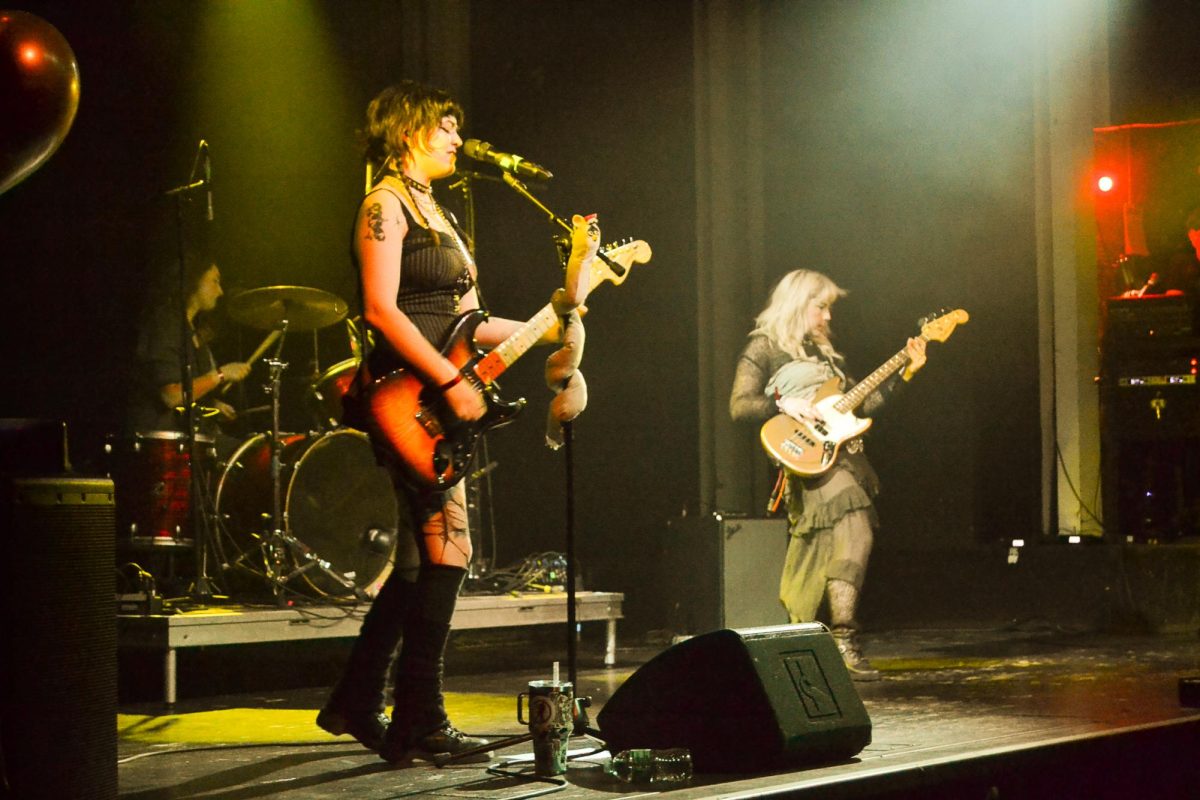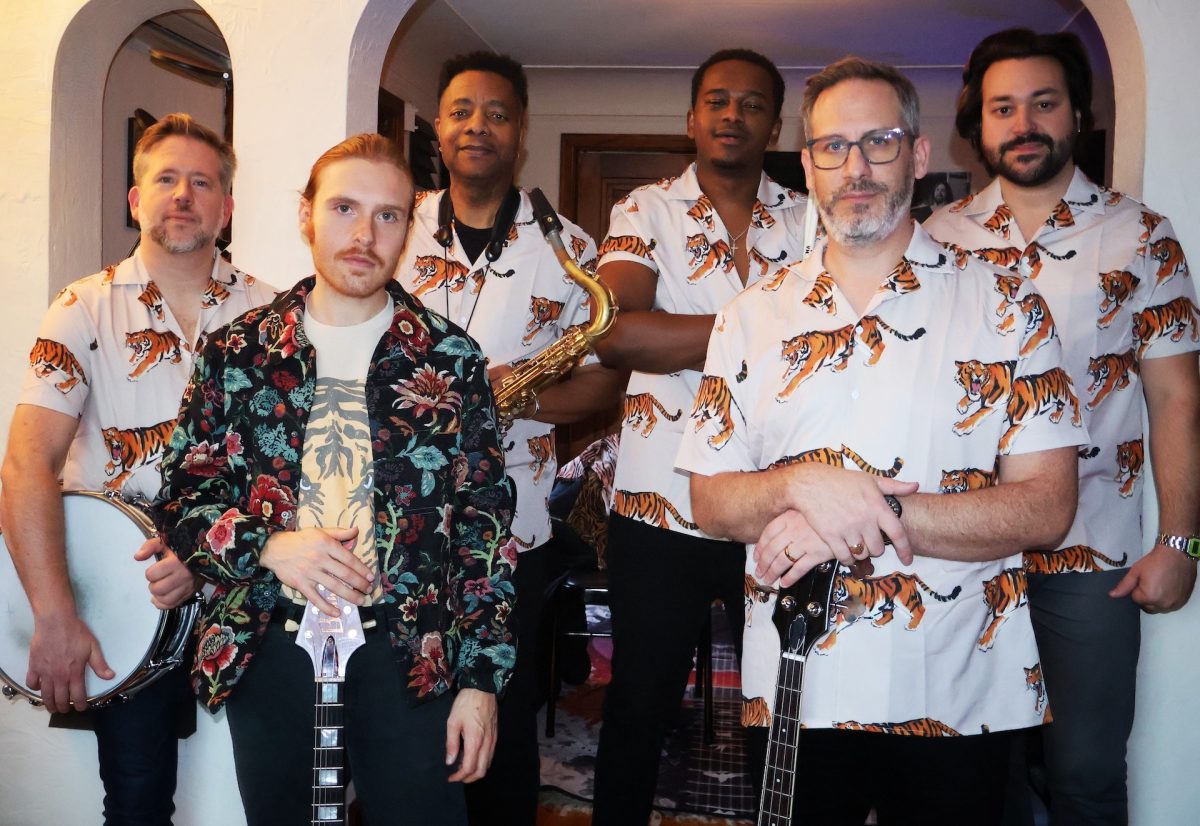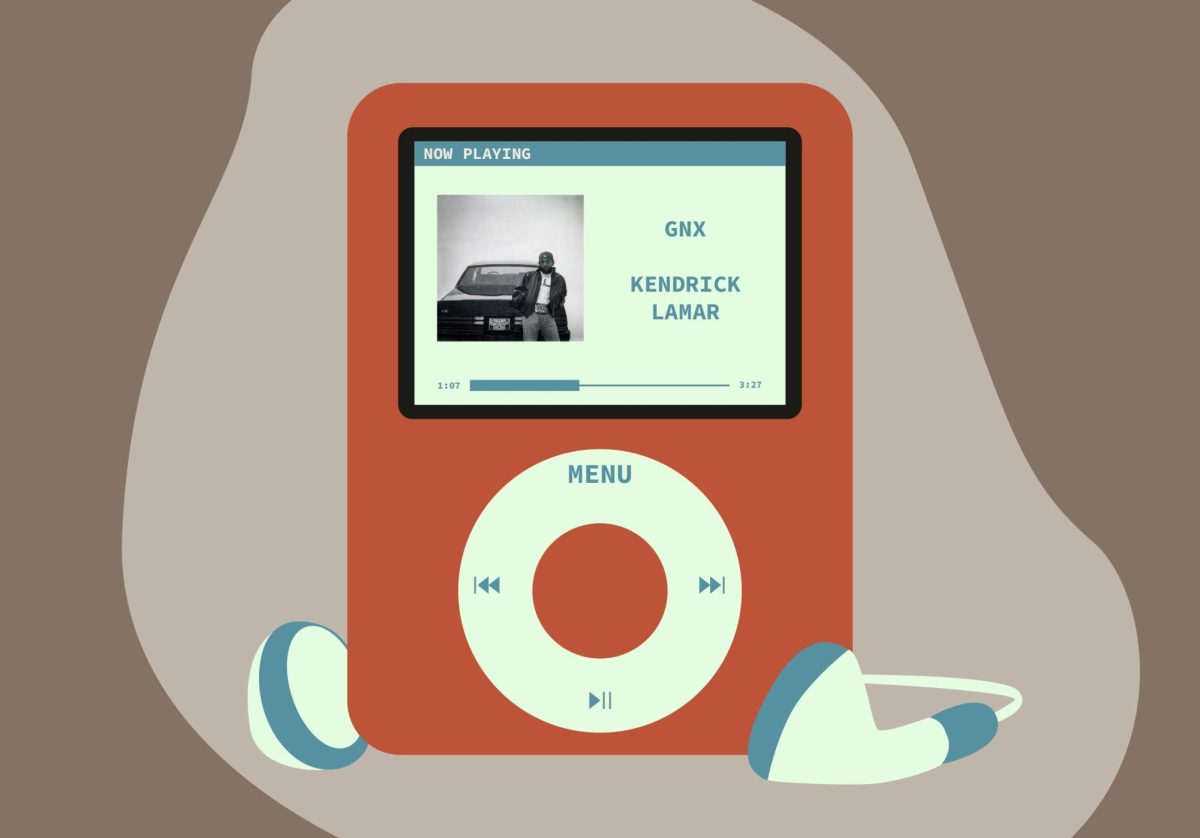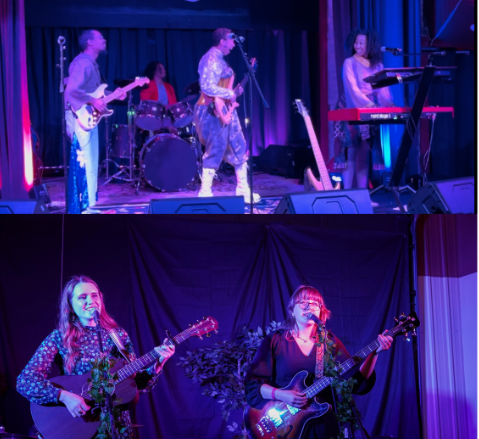By night he lurks in shadowy sidewalk corners under blinking lamp-posts and strums out death tunes in a band that sounds like what would happen if Edward Gorey and The Ronettes left their baby to die in a lightless well, yet it survived to sing Poe-laced poetry in a post-punk manner. By day, Zombie Season frontman, Ali Jaafar, is a surprisingly quirky, bespectacled goofball with the same brand of twitchy eloquence that defined his childhood idol Rivers Cuomo. After sitting down with Jaafar, a child psychology senior at the University of Minnesota, and hearing about his rambling childhood and gothic muses, his fixation with the very essence of horror makes a lot more sense. Zombie Season recently released its nuanced follow-up to last year’s poppy, sweet-as-sugar but dark-as-a-raven EP “Life is Tragic.” The similarly morose “Our Living Funeral” contains less instant pop satisfaction, instead making the listener work for it. The sound flies not like a parakeet, as “Life is Tragic” did with its cute songbird pop jams, but rather like a damned bat swooping ominously in a cave. The result sounds like a poignant vampire opera. Jaafar, who is also editor-in-chief of the underground campus magazine The Wake, sat down with the Daily to discuss, among other things, the new album, The Wake and Weezer. What’s the genesis of Zombie Season? It’s kinda funny. A little more than a year ago our old bass player Amelia and I were in a 48-hour band contest, and we weren’t in the same band; we were in different bands. But she played cello and I was like, “Oh I play cello too. We should have a band because we both play cello.” And the first practice we had I showed up with a bass. I don’t really know why, I was just like, “I wanna play bass.” And I don’t even play bass anymore. But we just started jamming from there. We got my friend to drum and we just started playing. And then a lot of other crap happened and now there are completely different people in the band. People just kinda move around, ya know? That’s just how it is when you’re in a local band âÄî you aren’t making any money. Where did you grow up? I’ve lived all over the country. As for when I was a kid, I was in Cincinnati, mostly. And then I moved to Minneapolis when I was in seventh grade or something. So I’ve lived just pretty much here in Minnesota, but I’ve lived in Cincinnati, Texas. And how did this lead you to punk music? I think it was because when I was little I really liked Weezer. I also really liked David Bowie. Don’t we all? Sure. I mean if you’re a kid and you like Weezer and David Bowie, you are eventually going to get into punk. So you don’t think the geography of your upbringing really affected your psyche to guide you towards punk music? Well I guess it’s more anyone who is disaffected, a little bit intelligent and had a [expletive] family life probably gets into punk. So are you saying you had a [expletive] family life? I mean, sure why not. No one wants to talk about it but … yeah sure. Describe your sound. What are you trying to accomplish with it or what do you think it is? I think the basic idea is that it’s post-punk music. You know like Joy Division, the Smiths and a lot of other post-punk bands that I like and can’t think of right now. And mix that with 60s pop, which was another thing we really liked. And when I say ’60s pop I mean obviously you got things like The Ronettes, you’ve got a lot more obscure ones that I really like, for example the Paris Sisters and this whole French music thing called “Yeye.” My favorite from that is a woman called Francoise Hardy, who is just now coming into prominence among people our age. Back to the original question though: It was post-punk and 60s pop and [we just wanted to] make it really … just dark, because that’s the stuff that we’re all into. I’m obsessed with horror âÄî horror anything, movies, books, whatever. Especially Edward Gorey. The art for our last CD was just an Edward Gorey facsimile. Let’s talk about the new album. How is it sitting with you? I am really happy with it. I think it’s really cool. I think we spent the right amount of time recording it, which wasn’t a lot but we just made sure we did it right. As far as the songwriting, it’s a lot more nuanced than our last album so it holds up more. Our first CD is, I think, a good pop record. But if it was someone else’s band, I’d listen to it a bit then I’d be like, “What else do you got?” So I think the new one is less of that instant pop thrill. And we’re already working on new stuff now, and I think it’s moving even farther in that direction âÄî more nuance, more stuff going on, less “let’s bang out a pop song.” You’re the Editor-in-Chief of The Wake, why is it more B.A. [bad ass] than The Minnesota Daily? I counter with: What about The Wake is not more B.A. than The Minnesota Daily? [Puts hands up] The thing about The Wake is anyone can write whatever they want and people just have complete freedom. So we can cover controversial issues in controversial ways. Anything else you want to say? People should go to shows more. You’ll find a lot of good bands, not necessarily bands that have their [expletive] together, but bands that have an internet following and have retail and you can go see them in real life. So if you died tonight, on your grave would read the epithet “Go to shows”? Well … it’d probably be something a lot less hopeful.
Interview: Zombie Season
A&E sat down mano-a-zombie with the band’s frontman to discuss music, psychology, journalism and David Bowie.
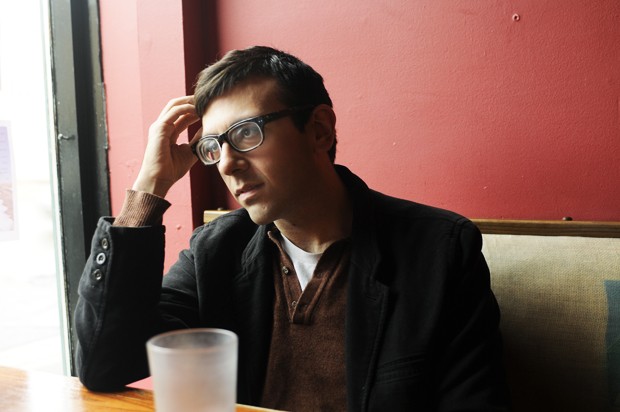
stzombieseasonband-bm
by Mark Brenden
Published September 30, 2009
0
More to Discover


